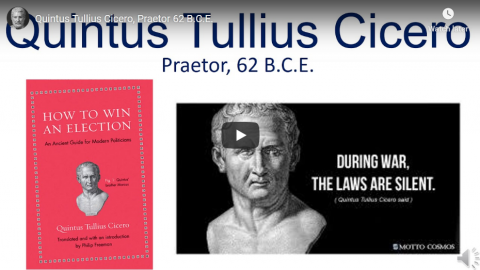Rex Krueger
Published 6 May 2020What’s the best tenon saw for under $100? Let’s find out!
More video and exclusive content: http://www.patreon.com/rexkrueger
Buy a saw from this video (affiliate) Scroll down!
Crown Tenon Saw: https://amzn.to/2zPcWV6
Flynn Tenon Saw (Same as the crown; different name): https://amzn.to/3aTK9vr
Spear and Jackson 12″ Saw: https://amzn.to/3fcgEIn
Spear and Jackson 10″ Saw: https://amzn.to/2zMI7Ah (same saw; just shorter)
Veritas Rip Carcass Saw (not affiliate): https://www.woodcraft.com/products/ve… [In Canada, direct from Lee Valley (non-affiliate link)]Build the saw vise!: https://youtu.be/_e4rqp0yPzg
Wood Work for Humans Tool List (affiliate):
Stanley 12-404 Handplane: https://amzn.to/2TjW5mo
Honing Guide: https://amzn.to/2TaJEZM
Green buffing compound: https://amzn.to/2XuUBE2
Cheap metal/plastic hammer for plane adjusting: https://amzn.to/2XyE7Ln
Spade Bits: https://amzn.to/2U5kvML
Metal File: https://amzn.to/2CM985y (I don’t own this one, but it looks good and gets good reviews. DOESN’T NEED A HANDLE)
My favorite file handles: https://amzn.to/2TPNPpr
Block Plane Iron (if you can’t find a used one): https://amzn.to/2I6V1vh
Stanley Marking Knife: https://amzn.to/2Ewrxo3
Mini-Hacksaw: https://amzn.to/2QlJR85
Blue Kreg measuring jig: https://amzn.to/2QTnKYd
Blue Handled Marples Chisels: https://amzn.to/2tVJARY
Suizan Dozuki Handsaw: https://amzn.to/3abRyXB
Vaughan Ryoba Handsaw: https://amzn.to/2GS96M0
Glue Dispenser Bottle: https://amzn.to/30ltwoB
Orange F Clamps: https://amzn.to/2u3tp4X
Blue Painters Tape: https://amzn.to/35V1Bgo
Round-head Protractor: https://amzn.to/37fJ6oz
5 Minute Epoxy: https://amzn.to/37lTfjK
Dewalt Panel Saw: https://amzn.to/2HJqGmOPlans, t-shirts, and hoodies: http://www.rexkrueger.com/store
Get my woodturning book: http://www.rexkrueger.com/book
Follow me on Instagram: @rexkrueger
May 7, 2020
The best affordable joinery saw for hand-tool woodwork
Interesting change in shipping patterns … to avoid the Suez canal
Colby Cosh linked to this story at gcaptain.com which would have been an unbelievable one in the pre-epidemic world:

A column of ships along the Suez Canal on 3 December, 2011.
Photo by https://web.archive.org/web/20161022104657/http://www.panoramio.com/user/2433337?with_photo_id=64163879 via Wikimedia Commons.
The Suez Canal Authority (SCA) is set to lose over $10m in revenue from container lines routing vessels via the Cape of Good Hope rather than its waterway.
According to new Alphaliner research, “the number of containerships that have opted to use the Cape route and bypass the Suez Canal has risen to a historic peace-time high,” including at least 20 sailings on the Asia-Europe, Europe-Asia and North America east coast-Asia trades.
“A unique combination of a container tonnage surplus and rock-bottom bunker prices has increasingly prompted ocean carriers to avoid the canal – and thus its fees,” the analyst noted today.
“Rather unusually, even three westbound Asia-Europe headhaul sailings have opted for the Cape route, all operated by CMA CGM.
“Carriers very rarely choose this longer route for the time-sensitive headhaul, but the low bunker price and lack of demand in European markets, hit by the Covid-19 lockdowns, have suddenly made such moves viable,” it added.
1947: From Dutch Boy to Murderer – 1st “Police Actions” | The Indonesian War of Independence Part 3
TimeGhost History
Published 6 May 2020The Dutch are desperate to regain control over their colony as the Lingadjatti Treaty failed to deliver. They launch a brutal military offensive which they mask as “police actions” in an attempt to satisfy the international community.
Join us on Patreon: https://www.patreon.com/TimeGhostHistory
Hosted by: Indy Neidell
Written by: Joram Appel
Director: Astrid Deinhard
Producers: Astrid Deinhard and Spartacus Olsson
Executive Producers: Astrid Deinhard, Indy Neidell, Spartacus Olsson, Bodo Rittenauer
Creative Producer: Joram Appel
Post-Production Director: Wieke Kapteijns
Research by: Joram Appel and Isabel Wilson
Edited by: Karolina Dołęga
Sound design: Marek KamińskiColorizations:
Carlos Ortega Pereira (BlauColorizations) – https://www.instagram.com/blaucoloriz…
Dememorabilia – https://www.instagram.com/dememorabilia/
Jaris Almazani (Artistic Man) – https://instagram.com/artistic.man?ig…
KlimbimResearch Sources: https://bit.ly/IndoSources
Visual Sources:
Nationaal Archief
Tropenmuseum, part of the National Museum of World Cultures
Archive by Screenocean/Reuters https://www.screenocean.com.Music:
“Last Point of Safe Return” – Fabien Tell
“Guilty Shadows 4” – Andreas Jamsheree
“Epic Adventure Theme 4” – Håkan Eriksson
“Symphony of the Cold-Blooded” – Christian Andersen
“Disciples of Sun Tzu” – Christian Andersen
“March Of The Brave 10” – Rannar Sillard – Test
“Remembrance” – Fabien Tell
“Moving to Disturbia” – Experia
“Deflection” – Reynard Seidel
“Heroes On Horses” – Gunnar Johnsén
“Not Safe Yet” – Gunnar Johnsen
“Ominous” – Philip Ayers
“Last Point of Safe Return” – Fabien Tell
“Epic Adventure Theme 4” – Håkan Eriksson
“Walk With Legends” – Bonnie Grace
“Epic Adventure Theme 4” – Håkan ErikssonA TimeGhost chronological documentary produced by OnLion Entertainment GmbH.
“When it’s over we can shave the heads of a few easy victims and vilify a few who enjoyed it too much. But I collaborated too.”
The mandatory shutdown of most of the world’s economy is inducing some introspection:

Prime Minister Boris Johnson at his first Cabinet meeting in Downing Street, 25 July 2019.
Official photograph via Wikimedia Commons.
I looked again at the decisions of the Johnson government. Should they have followed my instincts? No lockdown. Shield the elderly and the vulnerable, like my elder daughters immuno-deficient boyfriend, but let all normal life continue. Let the virus rip. Let the football league play out its conclusion and more to the point let out beloved Dundee Stars Elite Ice Hockey Club break our hearts and miss the playoffs. Such a government would probably have fallen within days, battered by the broadcast media, backbench rebellion and a nation that preferred to be kept safe from the unknown that they feared. Had they survived the month, then the elderly who by choice refused to be shielded would have pitched up in their thousands at A&E, to be faced with experienced nurses like my wife who triaged them on the doorstep and sent many of them home to die, to preserve the ICU beds for those who could be saved. Instead of admitting them so that they could die with every bit as much certainty. Had he survived the first month, Johnson would have fallen regardless and nation would be traumatised by the memory of grandparents sent home to die
Had I been in his shoes, I too would have sued for peace. My nation demanded it of me. I would have convinced myself it was the right thing and when the chest pain and cough arrived, I would have felt relief that I had made the correct call. I would have looked at the Malice of Piers Morgan and convinced myself that I was still moderate. I would have dismissed the feeble objections of lunatic libertarians.
When it’s over we can shave the heads of a few easy victims and vilify a few who enjoyed it too much. But I collaborated too.
Accurately Setting Your Jointer Tables
Popular Woodworking
Published 12 Apr 2018Learn valuable tips on accurately setting the tables on your jointer from Marc Adam’s School of Woodworking instructor, Doug Dale. Get more information on getting the best performance from your power tools here: http://bit.ly/Power_Tool_Essentials
QotD: Chestnuts
Now that the consensus of media dieticians is shifting from carbohydrates to fats, I should like to put in a contrary word for chestnuts. They are very starchy indeed, contain little fat, and just a trace of protein. They are delicious roasted or boiled, and can be eaten au naturel once elegantly stripped of their casings. (Whereas, raw potatoes or yams are no fun at all.) They contain vitamins that other foods omit, better apportioned through a delicious nut than by chewing on manganese or copper. Moreover, they are real nuts, not fake ones like almonds and cashews, or peas passing themselves off as “groundnuts”. Those are all fats and useless calories. Chestnuts will make you fat, thus cutting out the middleman.
Which is why they have been fed to pigs, these last few hundred years; that, and the appalling propaganda mounted against chestnuts by our culinary elites. The European poor once ate them in quantity, as their filler; made bread from chestnut flour. Italians, harder to intimidate by fashion than most others, still adore their subtle flavours.
These thoughts were occasioned by a sealed bag of peeled chestnuts, casually purchased the other day as a snack while walking. They were candied in a rather disagreeable way. But worse, I unfortunately failed to read the label attentively, or would have noticed that the contents were “organic”. No intelligent consumer will buy anything on which this warning is prominently displayed. Quite apart from the doubling or tripling of the price, the product itself may be missing some important ingredient.
Children raised on “organic” food become weak and sickly. Those raised “vegan” as well are likely to die. If you find a child perishing in this way, be merciful and fill him with meat and chestnuts.
David Warren, “Chestnuts”, Essays in Idleness, 2018-01-29.
May 6, 2020
How to make a Saw Clamp | Paul Sellers
Paul Sellers
Published 5 May 2020It’s the small things that make our lives run smoothly, and making this saw clamp for saw sharpening guarantees vibration-free saw sharpening for life.
What’s not to like about a utility piece you made yourself from scrap without turning a single machine on too? Make one of these and you’ll be telling your grandkids that you made it 50 years ago and that you’ve been using it throughout your woodworking life!
We just thought we would let you know that Paul filmed this video (and a few more upcoming videos) by himself in the studio, and they were edited remotely by Natalie.
Our team has spent the last month or so working nearly entirely from home, which leaves the garage/studio free for Paul to use without increasing anybody’s risk from the virus.
Paul wanted to create some specific projects that could be made from scraps of wood using simple tools in order to encourage you all to make things at home if you can.
We think that Paul and the rest of the team have done remarkably well to create something uniquely tailored to the current circumstances, and we hope you enjoy this and the other upcoming videos.
——————–
Want to learn more about woodworking?
Go to Woodworking Masterclasses for weekly project episodes: http://bit.ly/2JeH3a9
Go to Common Woodworking for step-by-step beginner guides and courses: http://bit.ly/35VQV2o
http://bit.ly/2BXmuei for Paul’s latest ventures on his blog
Georgy Zhukov – Hero of the Soviet Union! – WW2 Biography Special
World War Two
Published 5 May 2020Georgy Zhukov’s rise to one day become the Hero of the Soviet Union did not happen overnight. Instead, the son of a poor tradesman has slowly worked himself up the ranks of the Red Army using his grit, determination, and iron will.
Join us on Patreon: https://www.patreon.com/TimeGhostHistory
Or join The TimeGhost Army directly at: https://timeghost.tvFollow WW2 day by day on Instagram @World_war_two_realtime https://www.instagram.com/world_war_t…
Between 2 Wars: https://www.youtube.com/playlist?list…
Source list: http://bit.ly/WW2sourcesHosted by: Indy Neidell
Written by: Francis van Berkel
Director: Astrid Deinhard
Producers: Astrid Deinhard and Spartacus Olsson
Executive Producers: Astrid Deinhard, Indy Neidell, Spartacus Olsson, Bodo Rittenauer
Creative Producer: Joram Appel
Post-Production Director: Wieke Kapteijns
Research by: Francis van Berkel
Edited by: Mikołaj Cackowski
Sound design: Marek Kamiński
Map animations: Eastory (https://www.youtube.com/c/eastory)Colorizations by:
Carlos Ortega Pereira, BlauColorizations, https://www.instagram.com/blaucoloriz…
Jaris Almazani (Artistic Man), https://instagram.com/artistic.man?ig…
Olga Shirnina, https://klimbim2014.wordpress.com
Sources:
Mil.ru
Cross of Saint-George Issue for subaltern officers 1917, courtesy Robert Prummel
from the Noun Project: company soldiers by Andrei Yushchenko, ak 47 by TMDSoundtrack from the Epidemic Sound:
Reynard Seidel – “Deflection”
Johannes Bornlof – “The Inspector 4”
Johannes Bornlof – “Deviation In Time”
Rannar Sillard – “March Of The Brave 4”
Johannes Bornlof – “Death And Glory 2”
Phoenix Tail – “At the Front”Archive by Screenocean/Reuters https://www.screenocean.com.
A TimeGhost chronological documentary produced by OnLion Entertainment GmbH.
Essential private sector workers and non-essential government workers
A couple of articles at the Foundation for Economic Education look at the arbitrary division of peoples’ jobs into two broad categories:
In a recent TV appearance with Dana Perino on The Daily Briefing, [Mike] Rowe made it clear he’s not a fan of the terms “essential” and “non-essential” worker. The problem with such a view, Rowe said, is that such terms have little actual meaning and the economy makes no such distinction.
“There’s something tricky with the language going on here, because with regard to an economy, I don’t think there is any such thing as a nonessential worker,” Rowe said. “This is basically a quilt … and if you start pulling on jobs and tugging on careers over here and over there, the whole thing will bunch up in a weird way.”
Rowe’s message is precisely what FEE president and economist Zilvinas Silenas was getting at in a recent article published at Townhall.
Allowing politicians to decide which businesses and products are “essential” is an invitation for disaster. If we continue to deny these businesses the ability to do the one essential thing they are best at — providing goods and services to millions of everyday Americans — we risk more than unemployment or recession of stock price plunge. We deprive ourselves of the best resource — our people — during the time of need.
The truth is, all workers are essential.
Unfortunately, all too often what is deemed “essential” is simply what’s convenient to state leaders making the decisions. Few would suggest that liquor store owners are inherently more essential than pizza parlor owners — except perhaps state revenue collectors. No doubt this is the same reason Michigan Gov. Gretchen Whitmer concluded that lottery tickets are essential, but gardening seeds are not.
Liquor stores and lottery tickets aren’t especially “essential” to Americans, just state budgets. But as one Washington State sheriff noted in April, this seems to be the criteria state leaders often use to determine what is “essential” and “non-essential”: whether it helps the government’s bottom line.
When the state picks winners and losers it’s not only unfair, however. It’s also destructive.
In the other piece, J. Kyle deVries points out that government cannot be immunized from the economic harm the shutdown has and continues to inflict on the private sector:
So far millions in the private sector have lost their jobs or have been furloughed — but not many in government have. Many government employees continue to get salaries and benefits despite not working. Their agencies most certainly will not have as much work to do since major portions of the economy are closing down. Many agencies won’t even be needed any longer, but you better believe they will continue to be funded and probably expanded over time. That is outrageous. As we suffer economically, government should not be exempted.
This phenomenon is truly confounding and unfair. After all, government does not exist without taxes and taxes can only come from people who produce and earn a living — in other words, the private sector. The private sector supports government employees who, on average, receive higher pay, better perquisites and much better retirement plans. That should change. As we restructure our economy in the wake of the coronavirus, government should be restructured as well.
Businesses have no guarantee they will remain in business — they must provide their customers with a quality product or service at a competitive price or they will go bust. But government agencies remain in place for life, even if they continue to provide lousy services at outrageous expense. Government needs to show us they are with us during this fight. Part of doing so is to take a hard look at various agencies and departments to see if they can be improved or if they need to be eliminated. Before you say that would be difficult, let’s look at some obvious choices.
Quintus Tullius Cicero, Praetor 62 B.C.E.
Thersites the Historian
Published 25 Jul 2018Quintus Tullius Cicero is best known as the younger brother of Marcus Tullius Cicero who wrote a pamphlet on running for the Consulship, but he was also one of Caesar’s legates in Gaul and a braver than average Roman.
Patreon link: https://www.patreon.com/thersites
PayPal link: paypal.me/thersites
Twitter link: https://twitter.com/ThersitesAthens
Minds.com link: https://www.minds.com/ThersitestheHis…
Steemit/dtube link: https://steemit.com/@thersites/feed
Backup Channel: https://www.youtube.com/channel/UCUrD…
QotD: The French philosophes and the “lower orders”
Apart from the different philosophical status they assigned to reason and virtue, the one issue where the contrast between the British and French Enlightenments was sharpest was in their attitudes to the lower orders. This is a distinction that has reverberated through politics ever since. The radical heirs of the Jacobin tradition have always insisted that it is they who speak for the wretched of the earth. In eighteenth-century France, they claimed to speak for the people and the general will. In the nineteenth century, they said they represented the working classes against their capitalist exploiters. In our own time, they have claimed to be on the side of blacks, women, gays, indigenes, refugees, and anyone else they define as the victims of discrimination and oppression. Himmelfarb’s study demonstrates what a façade these claims actually are.
The French philosophes thought the social classes were divided by the chasm not only of poverty but, more crucially, of superstition and ignorance. They despised the lower orders because they were in thrall to Christianity. The editor of the Encyclopédie, Denis Diderot, declared that the common people had no role in the Age of Reason: “The general mass of men are not so made that they can either promote or understand this forward march of the human spirit.” Indeed, “the common people are incredibly stupid,” he said, and were little more than animals: “too idiotic — bestial — too miserable, and too busy” to enlighten themselves. Voltaire agreed. The lower orders lacked the intellect required to reason and so must be left to wallow in superstition. They could be controlled and pacified only by the sanctions and strictures of religion which, Voltaire proclaimed, “must be destroyed among respectable people and left to the canaille large and small, for whom it was made.”
Keith Windschuttle, “Gertrude Himmelfarb and the Enlightenment”, New Criterion, 2020-02.
May 5, 2020
How to Make a Poor Man’s Rebate Plane | Paul Sellers
Paul Sellers
Published 14 Nov 2015Learn how to make a rebate plane to use for your upcoming projects using readily available materials. Paul Sellers goes into the details of making sure the wedge and blade fit accurately and how to use a chisel as the blade.
Killer Tanks – The Cromwell
gusty9053
Published 12 Jul 2014
Confusingly, the tank shown in the thumbnail isn’t a Cromwell, and many later tanks are shown in footage that is supposed to be from the Dunkirk evacuation during the Battle of France in 1940 (including wrecked Churchill tanks on the beach at Dieppe in August 1942). The video covers the genesis of the tank in WW1 and the British interwar neglect of tanks, but almost completely ignores light tanks and infantry tanks to concentrate on “cruiser” tank development. Wikipedia has a useful summary of the Cromwell family of tanks:
The Cromwell tank, officially Tank, Cruiser, Mk VIII, Cromwell (A27M), was one of the series of cruiser tanks fielded by Britain in the Second World War. Named after the English Civil War leader Oliver Cromwell, the Cromwell was the first tank put into service by the British to combine high speed from a powerful and reliable engine (the Rolls-Royce Meteor), and reasonable armour. The intended dual-purpose high velocity gun could not be fitted in the turret and the medium velocity dual purpose gun fitted proved inadequate. An improved version with a high velocity gun became the Comet tank.
The name “Cromwell” was initially applied to three vehicles during development. Early Cromwell development led to the creation of the A24 Cavalier. Later Cromwell development led to the creation of the competing Tank, Cruiser, Mk VIII, Centaur (A27L) design. The Centaur tank was closely related to the Cromwell, both vehicles being externally similar. The Cromwell and Centaur tanks differed in the engine used; the Centaur had the 410 hp Liberty engine, the Cromwell had the significantly more powerful 600 hp Meteor.
The Cromwell first saw action in the Battle of Normandy in June 1944. The tank equipped the armoured reconnaissance regiments of the Royal Armoured Corps, in the 7th Armoured Division, 11th Armoured Division and the Guards Armoured Division. While the armoured regiments of the latter two divisions were equipped with M4 Shermans, the armoured regiments of the 7th Armoured Division were equipped with Cromwells. The Centaurs were not used in combat except for those fitted with a 95 mm howitzer, which were used in support of the Royal Marines during the amphibious invasion of Normandy.
[…]
Post war
After the war, the Cromwell remained in British service, and saw service in the Korean War with the 8th King’s Royal Irish Hussars.
Cromwell Tanks were used by Czechoslovakia and Israel.
Fifty-two Centaur I tanks were donated in early 1946 to the Greek Army, during the opening stages of the Greek Civil War but they were kept in storage due to the lack of trained personnel. In 1947, the first Greek officers returned from training courses in the United Kingdom and training of tank crews began. In April 1948, the Centaurs were organised in three Centaur tank companies initially numbered II, IX and XI, but a year later were renumbered 381, 382, 383 and temporarily attached to Reconnaissance Regiments 391, 392, and 393. The Centaurs saw limited service in the war because battles were fought mainly on mountainous areas, but proved useful in supporting infantry units and in defence of inhabited areas. After the end of the war, in October 1949, the three Centaur companies were organised into the 391 Tank Regiment. The Centaurs were replaced by US built M47s and in 1962 were sold and scrapped. One Centaur is preserved in the Greek Army Tank Museum.
The British army, Austria and Jordan used the upgraded Charioteer version of the Cromwell post-war. Jordanian vehicles saw action in conflicts in the Middle-East.
The perverse incentives of the Wuhan Coronavirus outbreak
David Warren has clearly taken his cynical pills today:
The daily count of deaths from the Red Chinese Batflu is among the prized, scare-mongering features of our mass media. I am among those who consider these numbers to be significantly overstated, for a reason that Nikolai Gogol would understand. Each corpse is worth cash to some public authority, usually from a higher authority; and as always, finally from the taxpayers. Each also saves money for government programmes, that can be reallocated to the purchase of new votes. As the corpse providers from this virus are very old, and suffering from other life-threatening conditions, in almost every case, this statistical inflation is easy to perform. Death certificates are issued for any who died with “Covid-19,” whether or not they died from it, and more are then added of those who were never tested. Anything respiratory will do. It’s all judgement calls — on which side of the bread is buttered.
Compare if you will the Hong Kong Flu of 1968 and 1969. I was just reading a memoir, from down that memory hole. The death toll was actually higher then, than ours is now, and from within a smaller population; the victims included children and the young. Yet there were no interruptions in economic life; no public emergency theatricals; and at the height of the second wave of that scourge, we had events like Woodstock. (Those were the days, my friend.)
A neat way to correct for all our “judgement calls” might be to look at overall death rates, and see if they have risen or fallen. It is too early to get a clear view, but soon it may be too late, for vested interests will have tampered with them. All my life I have been learning to trust statistics, less — especially from those who dress in labcoats and affect that earnest look. Sometimes an exception must be considered, however. An unpredictable minority may be honest; some others might get numbers right by mistake.














